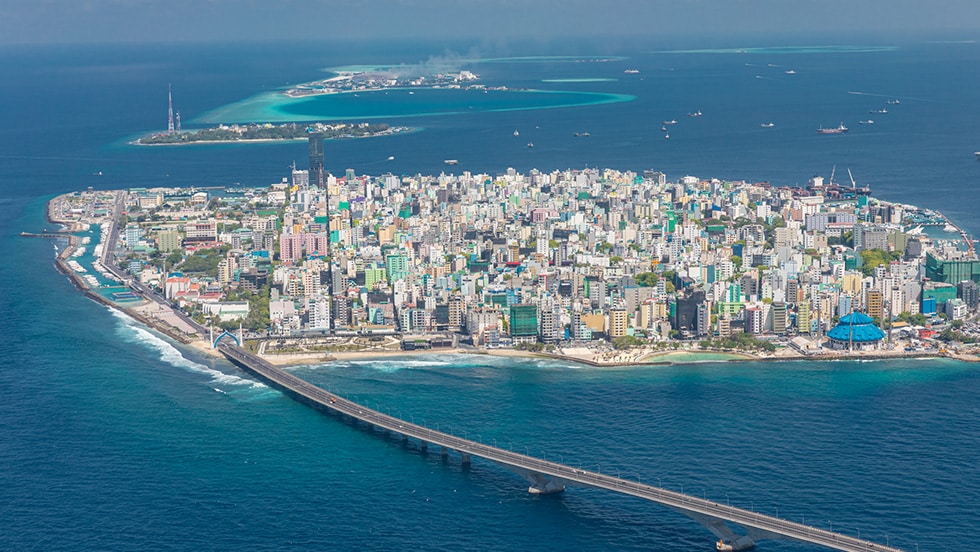
Malé operates as the political epicenter and economic core and cultural center of the Maldives Kingdom from its position as the national capital. The urban center approaches a high level of population density which contrasts the peaceful resort islands through its colorful building architecture and busy harbor area with mosques and markets. The historical and cultural aspects that exist in Malé make this small city an interesting choice for travelers who want to immerse themselves in local traditions.
The city of Malé presents its visitors with historical places to see plus cultural destinations and market shopping opportunities. Travelers visiting Malé must visit the Islamic Centre along with the Hukuru Miskiy (Old Friday Mosque) which was built in the 17th century and the Maldives National Museum. Visitors can experience daily life by visiting the fish market and fruit market beside spending leisure time at the artificial beach. Walking through Malé provides visitors with an extraordinary opportunity to observe its lively streets while absorbing historical information.
Malé serves as the capital where the highest level of infrastructure development occurs throughout the Maldives. The city contains various contemporary facilities which include accommodations along with dining places alongside health facilities and educational institutions and state government services. The city maintains good maritime transportation via ferries and speedboats to islands nearby in addition to having Velana International Airport positioned on adjacent Hulhulé Island. Even though being smallest in size Malé provides extensive infrastructure with its high population density and organized road system which faces limitations from space constraints.